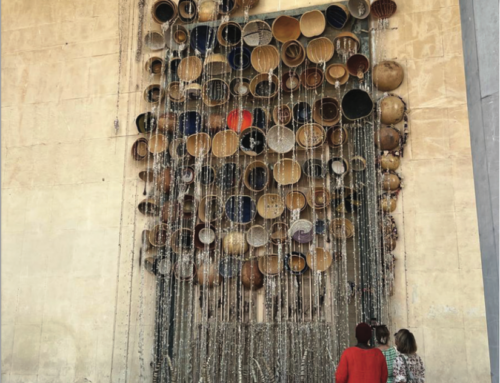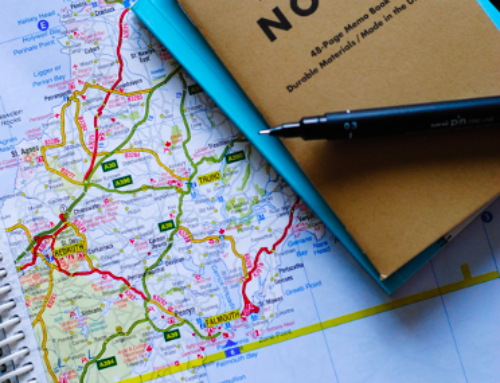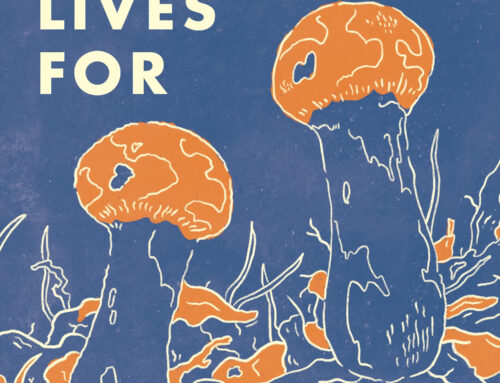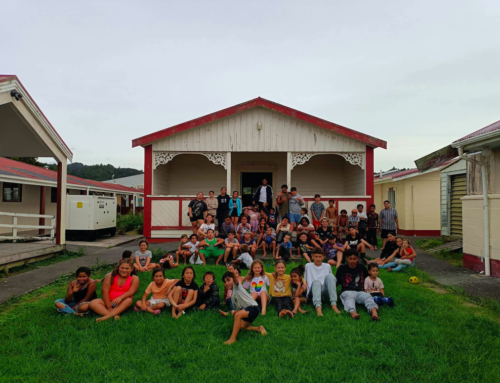by Alize Arıcan
AES is pleased to share this interview by Alize Arıcan, AES editorial intern and PhD candidate at the University of Illinois at Chicago, with Fırat Bozçalı, Assistant Professor at the University of Toronto Mississauga, about his recent article in American Ethnologist, “Probabilistic Borderwork: Oil Smuggling, Nonillegality, and Techno-legal Politics in the Kurdish Borderlands of Turkey.”
This conversation explores the politics of oil smuggling, nonillegal practices of border-(un)making, materiality, and technical-scientific knowledge as it intersects with legal worlds.
Alize Arıcan (AA): Fırat, thank you very much for making the time to talk with us about your recent article in American Ethnologist, “Probabilistic Borderwork: Oil Smuggling, Nonillegality, and Techno-legal Politics in the Kurdish Borderlands of Turkey.” Can you tell us a little bit about your broader project of which this piece is a part? How did you arrive at this project?
Fırat Bozçalı (FB): Kurdish smugglers and traders, and their lawyers challenge and alter the official borders of commodity markets through techno-legal practices that undermine, destabilize, or re-purpose the legal evidentiary regimes and particular truth claims. My wider project examines the ways in which smuggling, anti-smuggling efforts, and the prosecution of smuggling cases at Turkish courts appear as a terrain of political, moral, material, and sociotechnical struggles among Kurdish smugglers, traders, lawyers, and state authorities.
Kurdish smuggling economies have long been associated with multiple political meanings and moralities in Turkey. Since the 1990s, Turkish state authorities have identified Kurdish smuggling economies with the PKK (Partiya Karkerên Kurdistan or Kurdistan Workers’ Party), a pro-Kurdish armed organization that Turkish authorities deemed as terrorist. Based on this smuggling-as-terrorism perspective, Kurdish smugglers increasingly came to be targeted by the state’s military forces, and more punitive anti-smuggling laws have been introduced. In contrast to the state’s smuggling-as-terrorism discourse, Kurdish borderland communities view state borders as illegitimate for dividing Kurdistan, the historical Kurdish homeland, and articulate their smuggling activities as legitimate trade activities among Kurdish communities. As a Kurdish researcher with a background in pro-Kurdish political activism, I wanted to unpack Kurdish smuggling economies as a contentious political terrain. I went to the Kurdish borderlands with questions on the opposing politico-moralities of smuggling. I particularly chose Van province, the largest Kurdish-populated border province in Turkey, because it was the leading smuggling node connecting the Kurdish borderlands across Turkey, Iran, and Iraq to the central and western regions of Turkey.

A street stall for smuggled cigarettes. Sentences written on wood pieces: “No to Violence” (Şiddete Hayır), “The smuggler is the one who is oppressed” (Kaçakçı Mazlum!), and “Keep on Smuggling” (Kaçakçılığa Devam). Van City Center, June 2013
Not long after I began my fieldwork, I realized that Kurdish borderland communities do not view smuggling as categorically legitimate. They dismiss smuggling activities that are conducted in close cooperation or partnership with state authorities. And they associate having never been caught by state authorities with close connection to the state. As I briefly discuss in my article, Kurdish smugglers and traders frame being caught and sent to court under smuggling allegations as a pro-Kurdish and counter-state political statement. In courts, these smugglers and traders and their lawyers engage in specific techno-legal practices that rely on strategic use of multiple materialities, official paperwork, and legal procedures to counteract and alter the ways in which state authorities designate and enforce national borders. My ethnography in Van thus showed me the political significance of court processes in Kurdish smuggling economies.
Yet, I came to the idea of looking at courts to examine how borders are made and contested during my master’s degree research in Silopi, a Kurdish-populated district on the Turkish-Iraqi border. I was researching a specific type of oil trade that was conducted by Kurdish truckers carrying humanitarian aid cargos to Iraqi Kurdistan via the Turkish-Iraqi land border-crossing. On their way back to Turkey, these truckers brought extra diesel fuel in their amplified fuel tankers. As the scope of this peculiar form of oil trade, which locals called “oil pipeline on wheels,” increased (up to a few thousand liters of fuel per vehicle), Turkish authorities regularized and eventually monopolized it through the state oil company. Since the UN sanctions banned all oil exports from Iraq, Turkish authorities monopolized the oil trade by means of secret executive orders and directives published by the border district governorate. These directives asked Kurdish truckers to unload the extra diesel fuel in state oil company facilities that were located fifteen kilometers from the actual border gate. I came across a court case about a trucker who crossed the border with extra diesel fuel but refused to sell it to the state company. As the trucker declared the diesel fuel at the customs post, the court decided that he had committed not the crime of smuggling, but wrongdoing for violating the governorate’s directive. This case alerted me to how courts can become a key site to challenge, negotiate, and rework state borders, ultimately leading to this project.
AA: In the article, you coin terms such as “techno-legal politics” and “probabilistic borderwork.” Could you give us a snapshot of these terms? What kinds of debates are you contributing to through this conceptual work?
FB: Before elaborating on techno-legal politics, let me briefly explain how I define techno-legality. My understanding of techno-legality builds upon the critical scholarship, particularly Bruno Latour’s Making of Law (2010), that examines how legal and technoscientific epistemologies differ from each other. While technical-scientific knowledge is driven by constant cycles of objection and revision, this scholarship notes that legal decisions are made to be conclusive and thus foreclose or minimize future objections and appeals. In my ethnography, I further observed how these distinct epistemologies can get entangled, and inform and reshape each other before and during court processes. Rather than considering legal and technoscientific knowledge production as necessarily disparate processes, I see techno-legality as a field where these processes operate concomitantly and re-shape each other constantly. Thus, they enable unexpected and novel forms of political-legal agencies and subjectivities—and this is what I emphasize with “techno-legal politics.”
Techno-legal politics is a joint and strategic use of legal and technical-scientific bodies of knowledge and practices that aims to rework the course of legal processes and achieve certain political consequences. More specifically, it is a distinct field of politics that cannot be fully understood as technopolitics or judicial politics. What makes this political field distinctive is techno-legality and the specific political claims and goals, such as the smuggled oil’s nonillegality or the legal disruption of state borders, that it made possible. Instead of asserting the oil’s legality, for example, Kurdish traders and lawyers strived to undermine state authorities’ capacities to detect the smuggled oil. By mixing smuggled oil into legal oil, traders undermined the chemical stability of the oil marker, the specific chemical substance that state authorities used to differentiate legal oil from the smuggled kind. This chemical instability allowed lawyers to re-frame the illegality of oil to be detected and expressed only with a degree of uncertainty. Using this uncertainty as a legal counterargument, traders and lawyers managed to disrupt the state’s border-enforcement not just physically, but also legally. This legal disruption made the traders and lawyers’ borderwork, which I call probabilistic borderwork, a novel and unusual form of counter-state action, which could not be performed solely through legal activism or technical-scientific practices.
My articulation of probabilistic borderwork and probabilistic borders can also inform our understanding of borders. Based on the territorial logic of bordering that articulates national borders as physical lines, we tend to view borders as definitive lines of separation, especially in today’s world of increasingly securitized borders. National borders rarely fit with other forms of belonging, such as ethnicity, religion, language, or kinship. Divided among five different states, Kurdistan is a prominent example of how national borders divide peoples, cultures, and economies from within. Borders may not always be enforced; they may become more or less porous. Yet, national borders continue to be imagined as definitive lines of separation that are meant to include and exclude. Probabilistic borders, however, show what happens when we articulate borders as limits that are less certain or even probabilistic. Borders can also be re-framed as limits on a continuum of probability on which laboratory tests operate, and border-crossings can become incidents that are expressed only with a degree of probability. I conceptualize probabilistic bordering as a specific logic of bordering that not only differs from territorial bordering, but also gives legal and political agency to smugglers and other border-crossers.
AA: What I found especially captivating about your piece are the links you draw between political agency, activism, and nonillegality that unfold around oil smuggling. How do these connections expand our understandings of borderlands and courtrooms beyond Kurdistan and Turkey?
FB: Nonillegality emerged as a legal counterargument that Kurdish oil traders and their lawyers used in courts to make courts drop smuggling charges. Besides being a mere legal argument though, nonillegality allowed Kurdish traders and lawyers to construe their probabilistic borderwork as a distinct form of counter-state action. As a political-legal category distinct from both legality and illegality, the nonillegal refers to a field that is unintelligible to state authorities, a field where state borders become unenforceable. By smuggling oil, for example, Kurdish smugglers infringed state borders, but when they were caught and courts labeled the smuggled oil as illegal, state borders were re-installed and enforced. In that case, Kurdish smugglers’ challenge to state borders was limited to their ability to physically evade or bypass state control and avoid getting caught. Through material-chemical arrangements and certain legal maneuverings, Kurdish traders and lawyers might also succeed at making the smuggled oil appear as if it were legally imported. Yet, this type of techno-legal work would underpin and reproduce the state borders, even though Kurdish traders and smugglers still avoided criminal punishment. Making allegedly smuggled oil nonillegal, however, Kurdish traders and lawyers undermined the state’s ability to detect legal or illegal oil and thus enforce national borders in state courts. Smuggling could be articulated as an act of political protest, disobedience or even resistance, as it physically violated state borders. But by establishing the nonillegality of smuggled oil, these traders and lawyers made state borders legally unenforceable. In this way, nonillegality allowed Kurdish traders and lawyers to legally contest and disrupt the state’s border-enforcement.
I want to express that I had not initially expected to come across nonillegality as a legal counterargument, or its articulation as a distinct act of counter-state politics. In fact, nonillegality showed me how unexpected encounters or observations could be the most instructive and theoretically generative moments of ethnographic research. What makes nonillegality useful in theorizing techno-legal politics is the fact that Kurdish traders and lawyers framed it as a unique form of counter-state, political achievement that no other political actor could attain in the Kurdish borderlands. In fact, everyday life was full of politics in Kurdistan and the Kurdish borderlands, especially with the rise of pro-Kurdish politics since the 1990s. In addition to the ongoing clashes between the Turkish military and the PKK, pro-Kurdish political parties, activist groups, civil society organizations, and human rights lawyers were very involved with defending and advancing Kurdish rights claims.1 Yet, neither Kurdish cause lawyers and civil society activists nor politicians involved in electoral politics could interrupt the state’s law-enforcing authority legally. Kurdish guerillas interrupted the state’s territorial control, but they could not disrupt its border-enforcement legally either. Only the oil traders and their lawyers – actors who were not involved with institutional politics– contested and disrupted border-enforcement legally. As opposed to these multiple and highly engaged political actors, Kurdish traders and lawyers claimed an unusual and novel counter-state political role. This political role, and the techno-legal work that enables it, cannot be understood and analyzed through the existing categories of legal and illegal. So, in going beyond existing categories of politics and law, nonillegality generates and brings to our attention unexplored forms of politics.
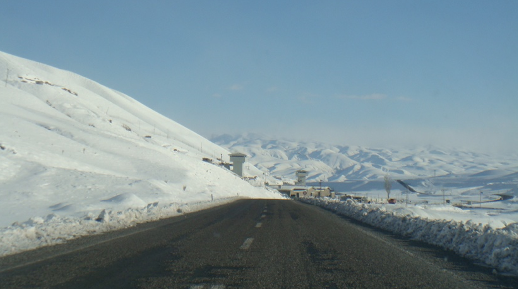
Driving to Bebleşin Gendarmerie Station and Checkpoint in one of the Van Province border districts. January 2014.
AA: Materiality—of oil, documents, reports—plays a major role in the probabilistic borderwork you describe. How did the lens of materiality contribute to your analysis in the article, and what does that approach make possible for the broader field of legal anthropology?
FB: From the very beginning of my research, I observed how the materialities of certain objects were central to Kurdish smuggling economies as well as regimes and infrastructures of anti-smuggling surveillance and prosecution. These objects primarily included contraband commodities such as oil, cigarettes, tea and sugar. In smuggling cases, for example, court expert laboratories often examined the material content of contraband commodities through provenance inspections to prove their illegality. For sugar smuggling, courts also inspected the material content of cloth sacks that were used to carry sugar cargos, and examined the sugar sacks to determine if they were similar to those used by the Turkish Sugar Authority (Şeker Kurumu), the sugar market regulatory authority at the time of my fieldwork. Various documents and their material properties were also essential to both smuggling and anti-smuggling efforts. These documents ranged from court files and trade documents to market quality reports and even package labels. Once, I attended a court session in which the court decided on the illegality of sugar in reference to package labels in “Arabic” (they were actually in Persian), and refused to conduct provenance inspection on the sugar. The package labels and security holograms were often used as corroborating evidence for cigarette smuggling allegations too. For example, one of the frequently smuggled cigarette brands was actually manufactured in Turkey. The cigarettes were first imported to Iran and then smuggled back to Turkey. Since the cigarettes for domestic consumption had the same material content as those for the Iranian market, and were manufactured in the same factory, courts used the non-Turkish package label to detect the smuggled cigarettes.
In the article, I unpacked the materialities involved in both oil smuggling and anti-smuggling efforts, and showed how these multiple materialities emerged as a field of struggle between state authorities and Kurdish smugglers and oil traders. For example, state authorities introduced oil marker, a specific chemical that was mixed with legal oil to differentiate it from the smuggled kind. Instead of time-consuming laboratory tests, the mobile marker inspection device, a machine the size of a cash register, aimed to simplify, facilitate, and expand anti-oil-smuggling surveillance. The material properties of oil (and oil marker) were thus used by state authorities to improve anti-smuggling efforts. Yet, Kurdish oil traders also used the very material properties of oil to counteract the state’s anti-smuggling efforts. They mixed legally processed oil into the smuggled oil to undermine the oil marker’s chemical stability. In this way, Kurdish traders rendered the smuggled oil unintelligible to state authorities, and eventually disrupted the state’s border-enforcement – a distinct form of political-legal agency that I came to reveal through the lens of materiality.
My work provides a few insights into how the lens of materiality can broaden the anthropology of law and politics. First, a focus on the materialities involved in legal processes might enable us to examine new forms of political and legal agencies or subjectivities that existing categories of law and politics do not necessarily explain. Probabilistic borderwork or nonillegality can be thought of as examples of these forms that I discuss in my article. Second, an ethnographic focus on multiple materialities can reveal unexpected collaborations among otherwise disparate actors and forms of expertise. In addition to collaborating with their lawyers, for example, Kurdish oil traders often worked with chemists or former oil company employees to chemically destabilize the oil marker. So, seemingly unrelated sites and bodies of professional knowledge and activities can also condition legal and political processes.
AA: Let’s switch gears and talk about the process of fieldwork. How did you navigate your multiple roles as a paralegal, an ethnographer, and a scholar intimately embedded in Kurdish politics? I would guess that you must have spent quite a bit of time contemplating anonymity and ethics of your research and writing processes, especially since you draw on court cases and political activism. What are some measures you’ve taken to assure the anonymity and safety of your collaborators that can be illuminating to our readers?
FB: The questions of research ethics and the anonymity of my interlocutors have been central to my research design. One of my initial concerns was to avoid facilitating state authorities’ anti-smuggling efforts by revealing a smuggling campaign through my fieldwork. Therefore, I centered my ethnography on court cases as opposed to smuggling networks, marketplaces or border villages. I understand “court cases” as specific research sites that bring together different actors, including judges, prosecutors, lawyers, traders and law clerks, and various places that include not only courtrooms and law offices, but also border villages, city-based warehouses, or inter-city road networks. As court cases enabled me to access social, political and material worlds that occasionally overlapped, my focus on court cases was methodologically and analytically generative. Entering the field through court cases and law offices allowed me to address my initial concern of exposing particular smuggling campaigns or networks to state authorities. In fact, I learned a lot about smuggling and smugglers from the court files or personnel rather than smugglers themselves. I had not expected to meet judges and prosecutors who were very knowledgeable about the constantly shifting smuggling techniques and networks, including specific mountainous passages that smugglers used, or chemical manipulation of oil marker.
For my fieldwork, I became a contemporary member of the Bar Association and joined its Human Rights Commission. I was already familiar with pro-Kurdish cause lawyering and human rights activism, as I had contributed to the work of the Society and Legal Research Foundation (Toplum ve Hukuk Araştırmaları Vakfı, TOHAV) during my undergraduate studies in Istanbul. My affiliation to the Bar facilitated my mobility across military checkpoints, city-centers, border villages and courthouses. It also eased my access to law offices. Rather than being associated with a particular law office, I followed several court cases at different offices and worked in these cases as a law clerk, paralegal or lawyer’s assistant. In Turkey, lawyers and law offices often employ their own law clerks, paralegals or assistants who participate in legal paperwork, casework and lawyer-client meetings. These positions, however, are not formally recognized or sanctioned by state authorities. Through my paralegal work, I was able to attend to the daily work routine of law offices as well as the particularities of the cases that I followed. As lawyers and their associates were supposed to maintain the confidentiality of their clients, for these specific cases that I worked on, I first obtained informed consent from the clients. To maintain the confidentiality of my interlocutors and collaborators (including lawyers, their associates, and clients), I attended all court sessions that the first-degree criminal court held on that day, instead of attending only the sessions of the specific cases that I was involved in through my paralegal work. As these cases were all processed at the first-degree criminal courts, the sessions were all open to the public. Yet, before attending the court sessions, I still introduced my research to the judges first and asked for permission to attend the sessions.
In writing my ethnography, I have paid close attention to ensure the confidentiality of my interlocutors as well. This primarily included, but was not limited to, the use of pseudonyms as well as changes to place names and event dates. In fact, using pseudonyms may not be enough to maintain the anonymity of a collaborator who runs a specific business or an interlocutor from a particular border village or law office. Many other types of information that range from family and kinship networks to specific and unusual techniques or items of smuggling, may render my interlocutors identifiable, especially to community insiders. For example, as a researcher coming from a politically engaged Kurdish family, I know that not only family names or affiliations, but also specific disputes in which families are involved may reveal personal identities. So, in my writing, I thoroughly think about these possibilities and scenarios, change certain information while maintaining the factuality of incidents, and even sometimes avoid revealing more information and intentionally leave some aspects ambiguous.
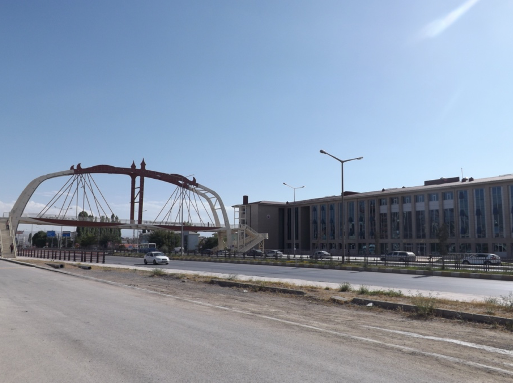
Van Central Courthouse and the courthouse’s overpass, which is decorated as the justice scale. Van City center, July 2014.
AA: Finally, what lies ahead for you, in terms of new projects, questions, issues?
FB: I am currently working on a book manuscript, tentatively titled Techno-Legal Borderwork: Politics of Smuggling in Turkey’s Kurdish Borderlands. Based on my fieldwork in Van, the book examines how Kurdish smugglers and lawyers legally contest and alter the ways in which state authorities designate and enforce national borders. It specifically conceptualizes techno-legal borderwork to examine the processes whereby Kurdish smugglers and lawyers rework the porosity of national borders and the politico-moral limits of justifiable smuggling. Exploring distinct sites of border-enforcement, namely, courtrooms, court expert laboratories, road checkpoints and mountainous borderlands, I document how regimes and infrastructures of anti-smuggling surveillance and prosecution give legal and political agency to smugglers and lawyers. By doing so, my book presents new conceptual ground to broaden our understanding of how politics, morality, and materiality interact.
I am also developing a new research project on the recent exodus from Turkey. I will explore individual “exit” stories of political dissidents, well-educated professionals (whom some might also call lifestyle-dissidents), and the wealthy and businesspeople who have left Turkey for Canada since 2016. I am interested in how emigrants decide to leave Turkey, which material, legal, economic, and social resources make their exits (and prospective return) possible, and what sorts of future projections and political subjectivities the experience of exodus enables or forecloses. Drawing on my long-standing research interests in political agency, state-subject interactions, materiality, and cross-border flows and networks, in this new project, I will engage with ongoing anthropological debates on citizenship, affect, and temporality, as well as authoritarianism and populism.
Notes:
[1] Under the emergency rule that was imposed after the failed coup attempt of July 15 2016, the state authorities have restricted the scope of everyday political engagement in Kurdistan by shutting down pro-Kurdish civil society organizations and local media outlets, removing elected Kurdish mayors, and arresting thousands of activists and politicians. I conducted my fieldwork between September 2012 and August 2014.
References:
Latour, Bruno. 2010. The Making of Law: An Ethnography of the Conseil d’Etat. Malden, MA: Polity Press.
Cite as: Arıcan, Alize. 2020. “AE interviews Fırat Bozçalı about “Probabilistic Borderwork: Oil Smuggling, Nonillegality, and Techno-legal Politics in the Kurdish Borderlands of Turkey”,” American Ethnologist website, 21 September 2020, [https://americanethnologist.org/panel/pages/features/interviews/firat-bozcali-probabilistic-borderwork-oil-smuggling-nonillegality-and-techno-legal-politics-in-the-kurdish-borderlands-of-turkey/edit]
